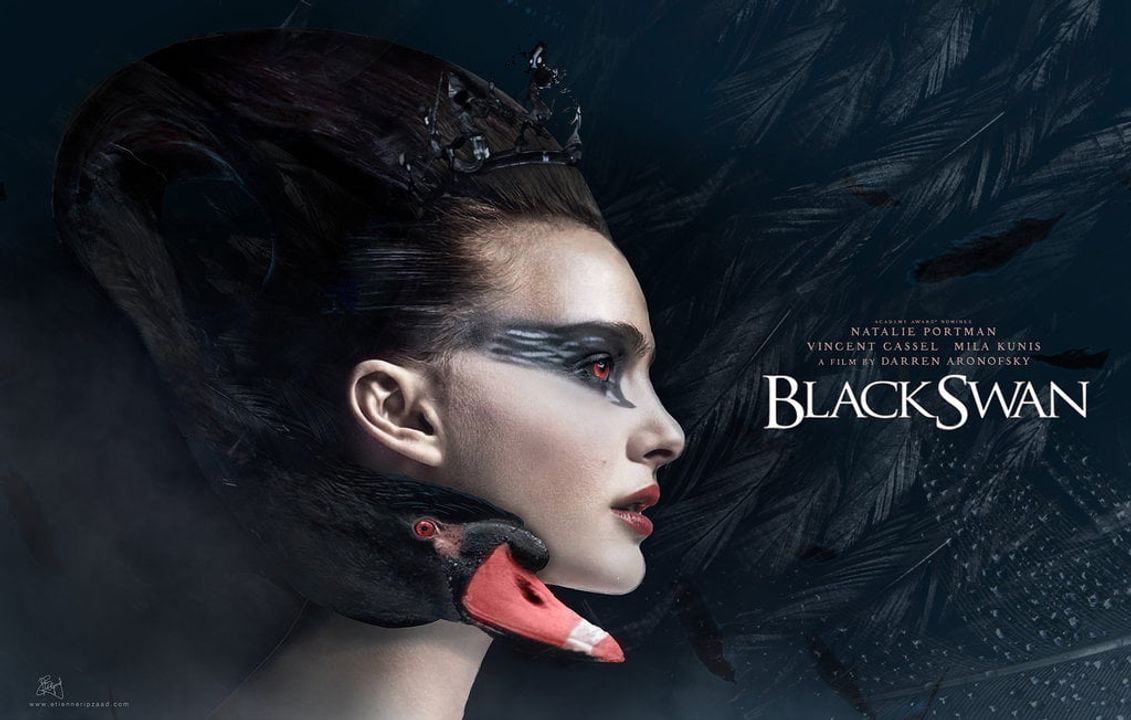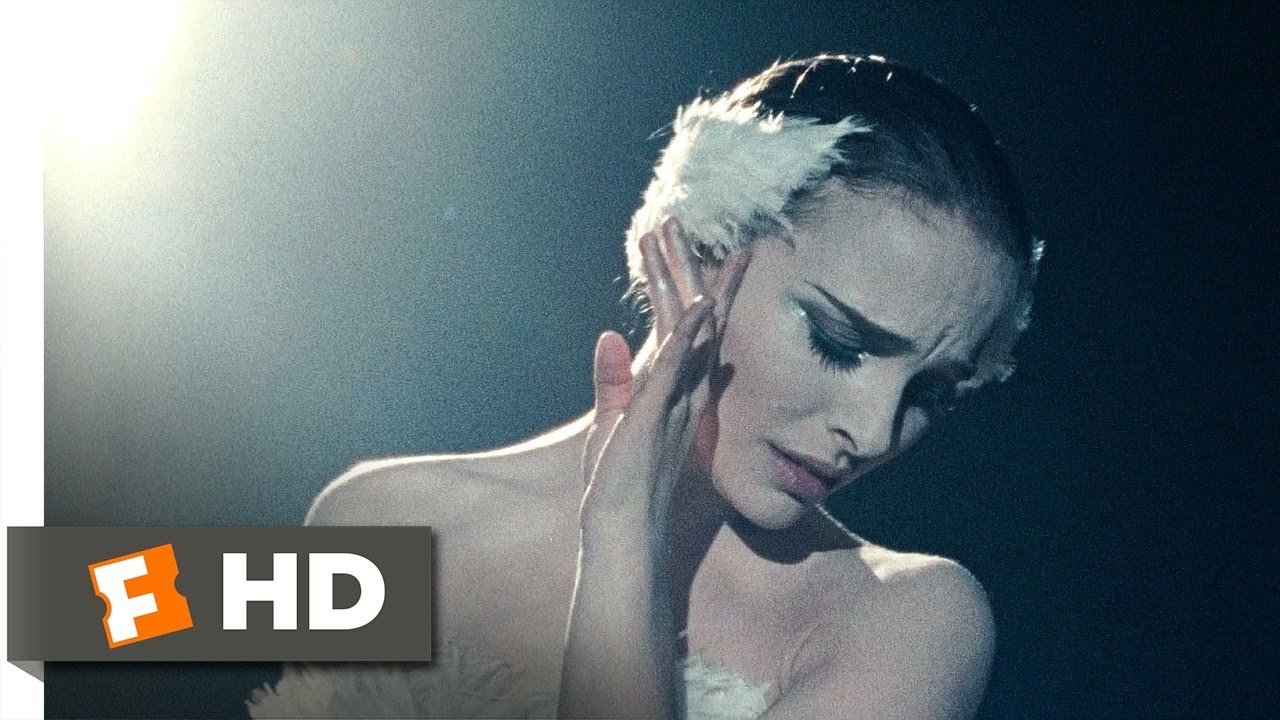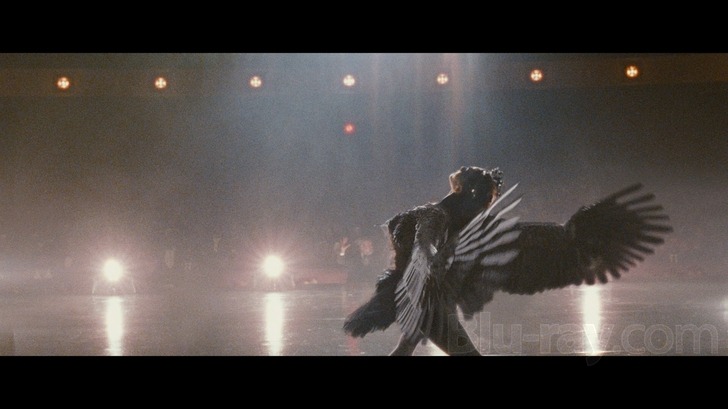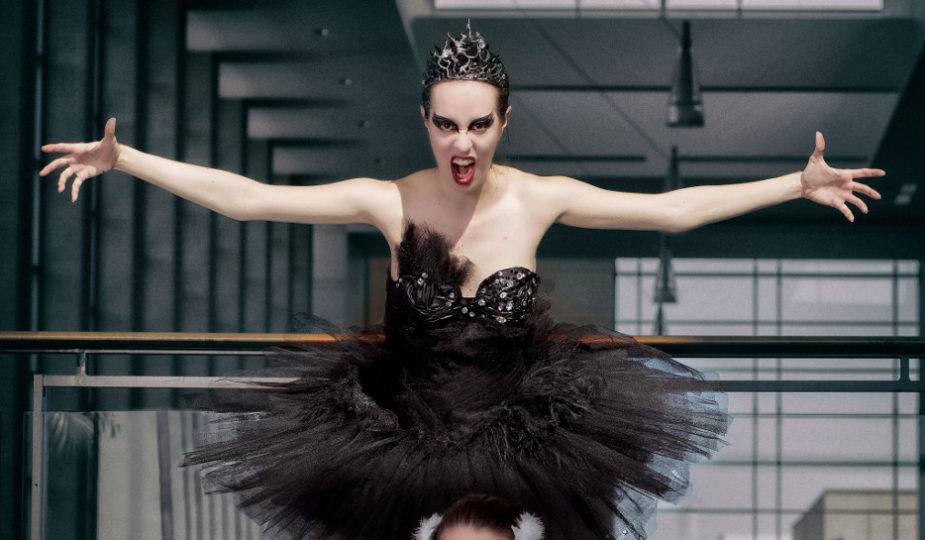Black Swan (2010)

Black Swan is a psychological horror film directed by Darren Aronofsky, released in 2010. Starring Natalie Portman, Vincent Cassel, and Mila Kunis, the film centers around the world of ballet and the intense pressures that come with it. The plot follows Nina Sayers (played by Natalie Portman), a young and ambitious ballet dancer, who lands the lead role in a prestigious New York City production of Swan Lake. However, the demands of the role and her obsession with perfection push Nina toward a disturbing psychological breakdown, blurring the lines between reality and hallucination.
The story is centered around Nina’s quest to embody both the innocent White Swan and the seductive Black Swan in Tchaikovsky’s famous ballet. She must dance both roles, each of which requires contrasting traits. The White Swan is delicate, pure, and graceful, while the Black Swan is dark, sensual, and free. Nina struggles to embrace the darker aspects of her personality, leading her to confront her repressed desires and inner fears. As the pressure mounts, Nina’s mental state deteriorates, and she begins to experience terrifying hallucinations that cause her to question her sanity.
At the core of Black Swan is Nina’s complex relationship with her controlling mother, played by Barbara Hershey. Nina’s mother, a former dancer who pushed Nina to pursue a career in ballet, is overbearing and demanding. This toxic mother-daughter dynamic contributes to Nina’s fragile mental state. Her mother’s constant criticism and emotional manipulation drive Nina to seek approval and perfection at any cost. This relationship becomes a central theme in the film, exploring the psychological toll of living up to someone else’s expectations and the consequences of pursuing success without self-identity.

Nina’s rivalry with fellow dancer Lily, played by Mila Kunis, further exacerbates her psychological unraveling. Lily is carefree, confident, and embodies the very qualities that Nina is unable to embrace. As Nina becomes increasingly obsessed with Lily, she believes that Lily is trying to steal the lead role from her, which leads to feelings of jealousy and paranoia. Their complex relationship evolves from competition to intimacy, and the line between friendship and rivalry becomes increasingly blurred. Lily’s presence in Nina’s life pushes her deeper into a world of fantasy and delusion.

The film’s visual style and cinematography play a crucial role in enhancing its psychological tension. Aronofsky uses tight, claustrophobic shots to emphasize Nina’s sense of entrapment in her world of ballet and her deteriorating mental health. The use of mirrors is also a key motif, reflecting Nina’s fractured identity and internal conflict. As Nina loses her grip on reality, the audience is taken on a journey through her distorted perception of herself and the world around her. The eerie, unsettling atmosphere is heightened by a haunting score, particularly the use of Tchaikovsky’s Swan Lake, which mirrors Nina’s transformation.

In conclusion, Black Swan is a gripping psychological thriller that explores themes of ambition, perfection, and identity. Through Natalie Portman’s stunning performance and Darren Aronofsky’s masterful direction, the film delves into the complexities of the human psyche and the destructive nature of obsession. The film’s haunting visuals, intense character dynamics, and exploration of mental health make it a unique and unforgettable cinematic experience. Black Swan is a powerful portrayal of a woman’s descent into madness, driven by her desire to succeed at any cost.











